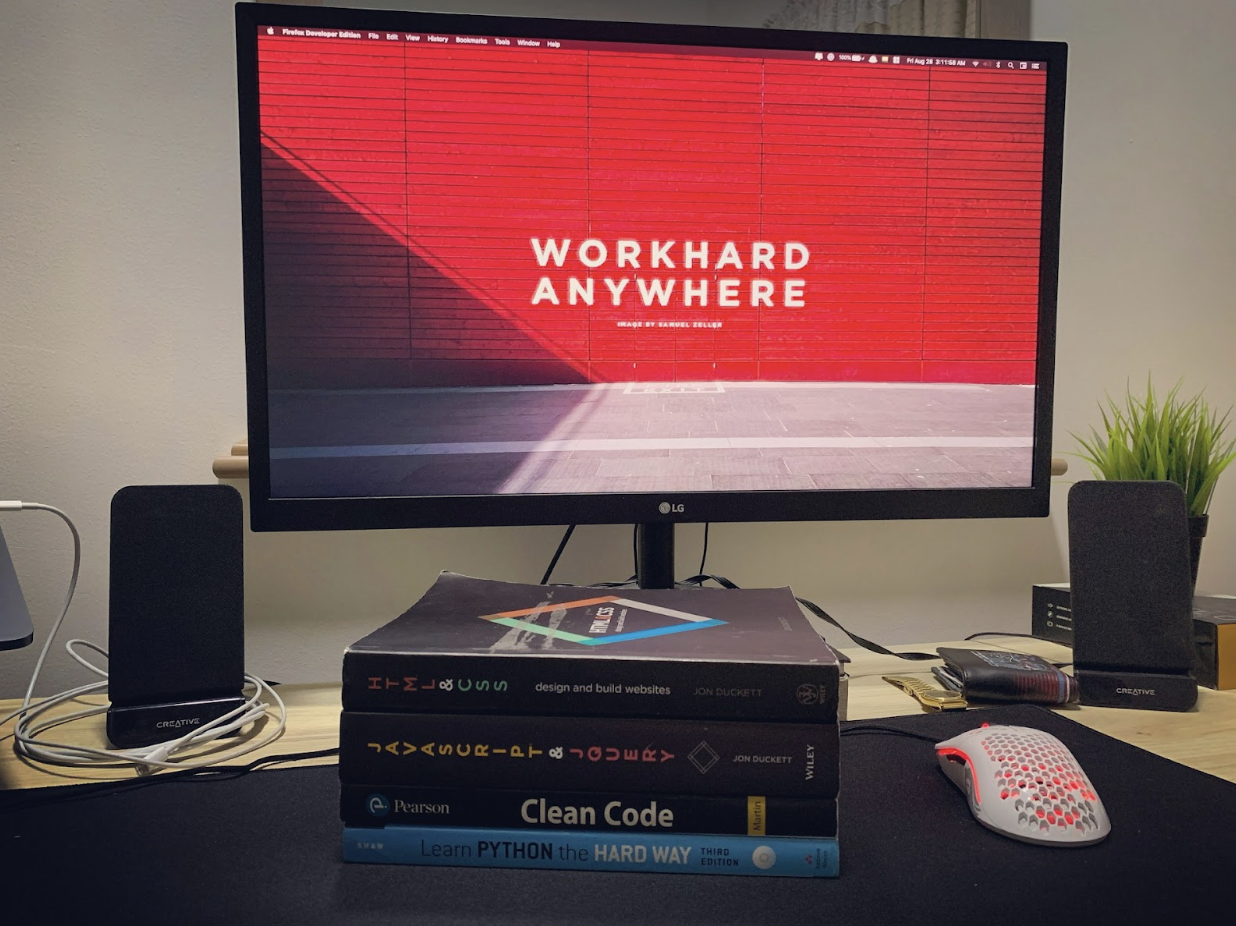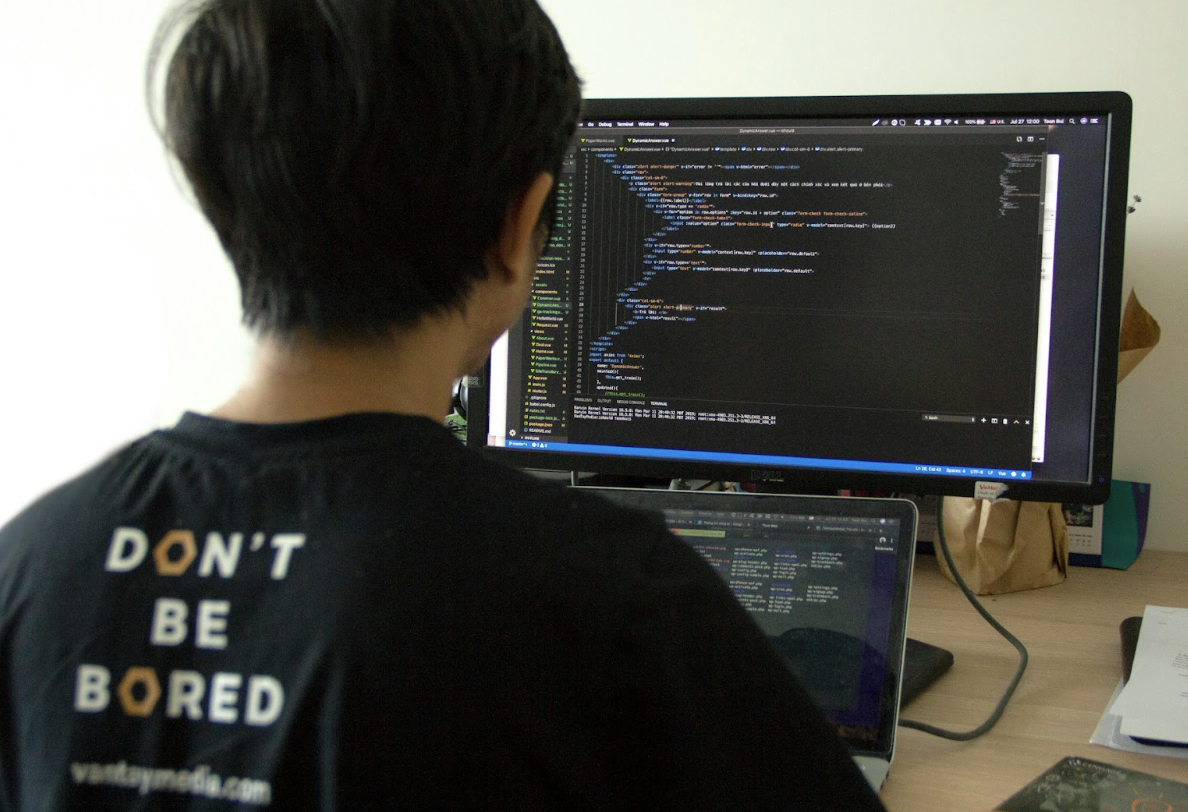 News
News
If your company is about to embark on the journey of hiring and managing remote developers, understanding the many different types of software development is crucial to your project’s success. Not only does it help in making informed hiring decisions within an industry that has an extremely versatile talent pool, but it also you to better manage a team by understanding their skills and roles. This article delves into ten types of software development every company about to hire nearshore developers should be familiar with. Keep reading to learn what options you have when software outsourcing!
What Does The Software Development Process Look Like?
Before we dive into the different types of software development your company can choose to go for when hiring an outsourced development team, it’s important to understand that this is a multifaceted process that involves creating, designing, deploying, and maintaining software. The broad term “software development” encompasses everything from initial brainstorming to post-launch maintenance, and each step plays its own key role in the creation of a successful software product.
The software development process typically follows these 6 stages across all types of software development:
Planning: This initial stage involves identifying the needs that the software will address and outlining a project plan.
Analysis: After planning comes the analysis, where developers study how the software will function and what it requires.
Design: Design involves deciding how the software will look and operate, including user interfaces and system operations.
Implementation: In this stage, developers write and compile all necessary code to create the software.
Testing: Testing is crucial to ensure the software works as intended and is free from bugs or security lapses. If needed, debugging will follow.
Deployment and maintenance: Once the software passes testing, it's deployed for users. Maintenance involves regular updates and troubleshooting to keep the software running smoothly.
10 Types Of Software Development Every Company Looking To Hire Remote Developers Should Know
1. Frontend Development:
Frontend development is one of the main types of software development and involves creating the parts of software that users interact with. Everything that’s visible on a website, that’s made through frontend development. These kinds of developers play a significant role in ensuring an intuitive and responsive user interface, which is why a good remote frontend professional would have strong skills in HTML, CSS, JavaScript, and various frameworks like React or Angular. They should also be proficient in responsive design and cross-browser compatibility issues.
2. Backend Development:
Backend development refers to server-side development - meaning it’s all about making everything work behind the scenes. Without backend developers, your application won’t be able to perform its essential functions. Any remote backend developers your company chooses to interview should be skilled in programming languages like Java, Python, or Ruby. They also need to understand databases, server architecture, and APIs.
3. Full-Stack Development:
Full-stack development is a hybrid of frontend and backend development. Full-stack developers are jacks of all trades who can handle all aspects of development, and any experienced professional within this field should have a comprehensive knowledge of both frontend and backend technologies. They need to be proficient in multiple programming languages, and databases and have an excellent grasp of the entire web development process - as they’re proficient in two types of software development at once.
4. Mobile Application Development:
Mobile development focuses on creating software for mobile devices. With the rising popularity of smartphones, mobile app developers are now more crucial than ever. Professionals specializing in this type of software development should be proficient in either iOS or Android development (or both) as these are the major operation systems at the moment. This will allow them to have the necessary knowledge and experience to develop and optimize applications to run efficiently on mobile devices.
5. Game Development:
Game development involves creating interactive games for various platforms. This field combines creativity with technical skills to create engaging user experiences, which is why game developers need a strong background in programming languages like C++ or Java as well as an interest in creative endeavors. Understanding of graphics, physics, artificial intelligence, and proficiency with game development tools like Unity or Unreal Engine are also required.
6. Embedded Systems Development:
Embedded systems development involves programming software for specific function devices like cars, home appliances, or medical equipment. These developers ensure that these devices function correctly. The main skills to look for in embedded systems developers include proficiency in programming languages like C or C++, understanding hardware design and architecture, and experience with real-time operating systems.
7. Data Science:
Data science involves analyzing and interpreting complex digital data to help businesses make decisions. Data scientists are fundamental to any data-driven organization. Remote data scientists should have solid math and statistical analysis skills, proficiency in languages like Python or R, and experience with machine learning concepts and tools.
8. DevOps Development:
DevOps is a software methodology all about improving collaboration between the development and operations teams by automating infrastructure, and workflows, and continuously measuring application performance. An experienced DevOps developer needs to be proficient in continuous integration tools, configuration management tools, and version control systems, and have a strong understanding of software testing and debugging.
9. Cybersecurity Software Development:
Cybersecurity software development focuses on creating systems that protect network data security, prevent unauthorized access, and maintain data privacy. This is the type of software development any company needs to protect its data. You should look for strong coding skills, an understanding of encryption algorithms and secure coding practices, and knowledge about threat modeling and security protocols when you hire cybersecurity developers.
10. Quality Assurance (QA) Development:
QA developers ensure software quality by detecting bugs or issues before the product reaches the end-user. They play a critical role in maintaining the reputation of your software product. QA developers should have a keen eye for detail, proficiency in automated testing tools, an understanding of different testing methodologies (like Agile Development), and excellent problem-solving skills.
Ready To Hire IT Professionals For All Types Of Software Development At A Lower Cost Through IT Staff Augmentation?
Understanding the primary different types of software development is essential for hiring the right talent for your team. As you embark on your nearshore outsourcing journey, make sure to know what skills you’re looking for and have a clear idea of the scope of your development project to ensure you find the perfect fit for your software needs. At Blue Coding, as a nearshore outsourcing company, we can help you hire a complete outsourced development team for an affordable cost while ensuring the bulk of the hiring work is taken off your shoulders thanks to our rockstar technical recruitment team. If you’re ready to hire nearshore developers and start accessing the latest software development technologies for the best price, contact us today and schedule your free discovery call!



